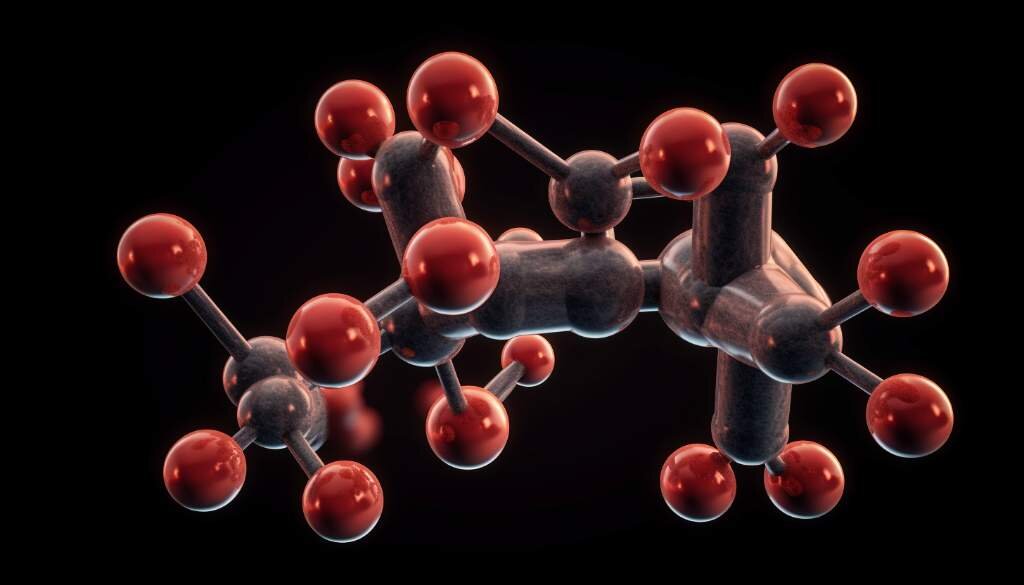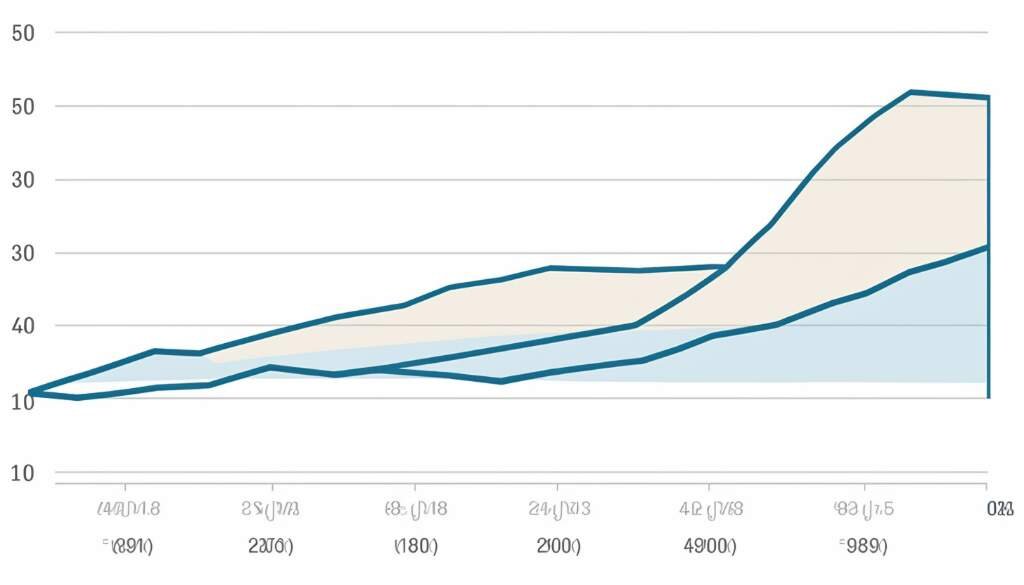
Introduction
Welcome to the section on Testosterone and Sexual Health. In this section, we will explore the role of testosterone in sexual health, the causes and effects of low testosterone on sexual function, diagnosing and treating low testosterone, as well as testosterone therapy for sexual health.
What is Testosterone?
Testosterone is a hormone that plays a crucial role in sexual health. It is primarily produced in the testicles in males and in smaller amounts in the ovaries and adrenal glands in females. Testosterone is often referred to as the ‘male hormone' due to its significant presence in men, but it is also essential for women's sexual health.
Testosterone is responsible for the development and maintenance of primary and secondary sexual characteristics in both males and females. In men, it is crucial for the production of sperm, maintaining sexual function, and regulating sex drive. In women, testosterone contributes to overall sexual well-being, including libido and arousal.
Testosterone levels typically reach their peak during adolescence and early adulthood, and gradually decline with age. However, various factors can cause testosterone levels to decrease at a faster rate, leading to potential sexual health issues.
In the following sections, we will explore how testosterone specifically impacts sexual health, the causes and effects of low testosterone, as well as methods of diagnosing and treating this condition.
What is Sexual Health?
Sexual health refers to the state of physical, emotional, mental, and social well-being related to sexuality. It is not merely the absence of disease or dysfunction, but encompasses positive aspects such as pleasure, intimacy, and satisfaction in sexual relationships. Sexual health is vital for overall well-being and quality of life.
Sexual health involves various interconnected elements, including:
- Sexual pleasure and satisfaction: This pertains to the ability to enjoy and derive pleasure from sexual activities.
- Consent and autonomy: It emphasizes the importance of engaging in sexual activities only with full consent and personal choice.
- Healthy relationships: This highlights the significance of communication, trust, respect, and mutual consent in sexual relationships.
- STD and HIV prevention: Sexual health encompasses the prevention, diagnosis, and treatment of sexually transmitted infections, including HIV.
- Reproductive health: It encompasses the ability to have safe and fulfilling sexual experiences, make informed choices about reproduction, and access reproductive healthcare services.
- Body image and self-esteem: Healthy sexual development includes fostering positive body image and self-esteem to facilitate healthy sexual expression.
In summary, sexual health encompasses a holistic approach to sexual well-being, considering physical, emotional, mental, and social aspects. It promotes healthy, consensual, and satisfying sexual experiences, and the prevention and management of sexual health issues.

The Role of Testosterone in Sexual Health
Testosterone plays a crucial role in sexual health, influencing various aspects of sexual function and well-being. As the primary male sex hormone, testosterone is responsible for the development of male reproductive organs and secondary sexual characteristics. It also plays a significant role in maintaining sexual desire, also known as sex drive.
Testosterone's impact on sexual health extends beyond sex drive. It also plays a crucial role in erectile function, influencing the ability to achieve and maintain erections. Additionally, testosterone contributes to other sexual functions, such as sperm production and the stimulation of sexual desire in both men and women.
In the next sections, we will delve deeper into how testosterone affects sex drive, its impact on erectile function, and other sexual functions influenced by testosterone. Understanding the various aspects of testosterone's role in sexual health can help shed light on potential issues related to low testosterone and guide appropriate diagnosis and treatment.
How Testosterone Affects Sex Drive
Testosterone plays a significant role in sexual health, including influencing sex drive. It is a hormone primarily produced in the testicles in men and in smaller amounts in the ovaries and adrenal glands in women. Testosterone levels tend to be higher in males, and it is often referred to as the male sex hormone.
When it comes to sex drive, testosterone has a crucial impact. It contributes to the development and maintenance of sexual desire in both men and women. In males, testosterone is responsible for the initial surge of sexual desire during puberty and continues to play a role in maintaining a healthy sex drive throughout adulthood. In females, although testosterone levels are much lower, it still contributes to sexual desire and arousal.
Research has shown that men with lower levels of testosterone often experience a decrease in their sex drive. They may have less interest in sexual activities and may find it more difficult to become aroused. On the other hand, men with optimal testosterone levels tend to have a healthier sex drive and increasing testosterone levels can help improve sexual desire and function.
It's important to note that testosterone is not the only factor influencing sex drive. Various other factors, such as stress, relationship issues, and overall health, can also impact sexual desire. However, maintaining healthy testosterone levels is an essential part of a satisfying sex life.
Testosterone's Impact on Erectile Function
When it comes to sexual health, testosterone plays a crucial role in maintaining erectile function. The level of testosterone in the body directly affects a man's ability to achieve and maintain an erection.
Testosterone stimulates several processes in the body that contribute to erectile function. Firstly, it promotes the production of nitric oxide, a molecule that helps relax the smooth muscles in the walls of blood vessels, allowing them to dilate and increase blood flow to the penis. This increased blood flow is essential for achieving and sustaining an erection.
Additionally, testosterone enhances the sensitivity of nerve endings in the penis, making them more responsive to sexual stimulation. This increased sensitivity improves the ability to achieve an erection and enhances sexual pleasure.
Furthermore, testosterone plays a role in maintaining the structural integrity of penile tissue. It helps prevent the loss of penile smooth muscle mass, which is vital for proper erectile function. Without adequate testosterone levels, the structural integrity of penile tissue may be compromised, leading to difficulties in achieving or maintaining an erection.
Research has shown a clear link between low testosterone levels and erectile dysfunction (ED). Low levels of testosterone can contribute to ED by reducing libido (sex drive), impairing the ability to achieve an erection, and causing difficulties in maintaining an erection.
It is important to note that while testosterone is essential for erectile function, it is not the sole determining factor. Other physiological and psychological factors can also influence erectile function. However, maintaining optimal testosterone levels is crucial for overall sexual health and well-being.
Other Sexual Functions Influenced by Testosterone
In addition to its role in sex drive and erectile function, testosterone also influences several other sexual functions in both men and women. These functions include:
- Sexual Desire: Testosterone plays a crucial role in maintaining healthy levels of sexual desire in both men and women. Low testosterone levels can lead to a decrease in sexual desire and interest in engaging in sexual activity.
- Arousal and Sensation: Testosterone is involved in the physiological response of arousal, including the sensitivity of erogenous zones and the intensity of sexual sensations. It helps in creating a heightened sense of pleasure and sensitivity during sexual activities.
- Orgasm: Testosterone contributes to the intensity and frequency of orgasms. Higher levels of testosterone are often associated with more intense and pleasurable orgasms.
- Reproductive Function: In men, testosterone is essential for the production and maturation of sperm cells. It influences sperm quantity, quality, and motility, thereby affecting fertility.
- Mood and Emotional Well-being: Testosterone impacts mood and emotional well-being, which can indirectly affect sexual function. Low testosterone levels have been linked to symptoms of depression, anxiety, and decreased overall satisfaction with life, which can have a negative impact on sexual health and relationships.
Overall, maintaining optimal levels of testosterone is crucial for maintaining a healthy sexual functioning in both men and women. Any imbalances or deficiencies in testosterone can lead to various sexual health issues.

Causes of Low Testosterone and its Effects on Sexual Health
Causes of Low Testosterone and its Effects on Sexual Health. Testosterone is a hormone that plays a crucial role in sexual health. When testosterone levels are low, it can have a significant impact on various aspects of sexual function. Understanding the causes of low testosterone and its effects on sexual health is important in order to diagnose and treat this condition effectively.
In the following sections, we will explore the medical conditions associated with low testosterone and how they affect sexual health. We will also discuss the effects of low testosterone on sex drive and sexual function. Additionally, we will cover the symptoms and signs of low testosterone, the diagnostic tests used to identify it, and the various treatment options available.
Stay tuned as we delve deeper into the causes and effects of low testosterone on sexual health in the upcoming sections.
Medical Conditions Associated with Low Testosterone
When it comes to sexual health, having adequate levels of testosterone is important. However, there are certain medical conditions that can lead to low testosterone levels, which can have a direct impact on sexual health and function.
One medical condition associated with low testosterone is hypogonadism. This is a condition where the testes do not produce enough testosterone. Hypogonadism can be caused by a variety of factors, including problems with the testicles themselves, such as injury or infection, or issues with the hypothalamus or pituitary gland, which are responsible for regulating testosterone production.
Another condition that can result in low testosterone is obesity. Excess weight can disrupt hormone levels in the body, leading to lower testosterone production. Additionally, conditions such as type 2 diabetes and metabolic syndrome, which are often linked to obesity, can also contribute to low testosterone levels.
Chronic illnesses such as kidney disease, liver disease, and HIV/AIDS can also impact testosterone production. These conditions can affect the normal functioning of the organs involved in testosterone production and can lead to lower testosterone levels.
In addition to these medical conditions, certain medications can also cause low testosterone. For example, opioid pain medications and steroids, when taken for a long time, can suppress testosterone production.
It's important to note that low testosterone can have significant effects on sexual health. In addition to a decreased sex drive, low testosterone can also lead to erectile dysfunction, reduced semen volume, and difficulty achieving orgasm.
If you suspect that you may have low testosterone, it is important to consult with a healthcare professional. They can perform tests to determine your testosterone levels and identify any underlying medical conditions that may be contributing to the problem. Treatment options for low testosterone may include hormone replacement therapy or addressing the underlying medical condition.
Effects of Low Testosterone on Sex Drive and Sexual Function
Low testosterone levels can have a significant impact on a person's sex drive and sexual function. When testosterone levels are lower than normal, it can result in a decrease in libido or sex drive. Individuals may experience a reduced interest in sexual activity and a diminished desire for intimate relations.
In addition to affecting sex drive, low testosterone can also affect sexual functioning. Erectile dysfunction, also known as impotence, is a common effect of low testosterone. Testosterone plays a crucial role in achieving and maintaining an erection. When testosterone levels are low, it can be more difficult for individuals to achieve and sustain an erection, leading to difficulties in sexual performance.
Other sexual functions can also be influenced by low testosterone. For example, testosterone is involved in the production of semen, and low levels can result in a decline in semen volume. It can also have an impact on orgasm, potentially causing a decrease in intensity or frequency of orgasms. It is important to note that while low testosterone can contribute to these sexual issues, they may have multiple causes and should be accurately diagnosed by a healthcare professional.

Diagnosing and Treating Low Testosterone
Diagnosing and treating low testosterone is an important aspect of maintaining sexual health. When testosterone levels in the body are below normal, it can lead to a range of symptoms and issues related to sexual function.
In this section, we will explore the various aspects of diagnosing and treating low testosterone. We will discuss the symptoms and signs that may indicate low testosterone, as well as the different diagnostic tests that healthcare professionals may use to confirm a diagnosis. Additionally, we will delve into the available treatment options for low testosterone, including both medical and lifestyle interventions.
By understanding how low testosterone can impact sexual health and having knowledge of the diagnostic and treatment options available, individuals can take proactive steps to address any concerns and maintain a satisfying and healthy sexual life.
Symptoms and Signs of Low Testosterone
Low testosterone, also known as hypogonadism, can have various symptoms and signs that can impact a person's overall well-being.
One common symptom of low testosterone is a decrease in sex drive. Testosterone plays a crucial role in regulating libido, so when levels are low, it can lead to a reduced interest in sexual activity.
Another common sign of low testosterone is erectile dysfunction (ED). Testosterone helps to stimulate the receptors in the brain that produce nitric oxide, a molecule involved in the process of achieving and maintaining an erection. When testosterone levels are low, it can make it difficult to achieve or sustain an erection.
In addition to impacting sex drive and erectile function, low testosterone can also affect other sexual functions. For example, it can lead to a decrease in the quality and intensity of orgasms, as well as a decrease in semen volume.
Aside from sexual symptoms, low testosterone can also cause other physical and psychological symptoms. Some individuals may experience fatigue, decreased energy levels, and reduced muscle mass. Others may have mood changes, such as increased irritability, depression, or difficulty concentrating.
If you suspect you have low testosterone, it is important to consult a healthcare professional for an accurate diagnosis. They can evaluate your symptoms and conduct tests to measure your testosterone levels. These tests may include blood tests that measure the total and free testosterone levels in your body.
Overall, recognizing the symptoms and signs of low testosterone is crucial in diagnosing and treating the condition. It can help individuals understand the root cause of their sexual health issues and seek appropriate treatment options.
Diagnostic Tests for Low Testosterone
When diagnosing low testosterone, there are several tests that can be conducted to measure the levels of this hormone in the body. These tests can help determine whether a person's symptoms are caused by low testosterone and guide appropriate treatment options. Here are some common diagnostic tests for low testosterone:
- Blood Test: A blood test is the most common method used to measure testosterone levels. It involves taking a blood sample, usually in the morning when testosterone levels are highest. The sample is then sent to a laboratory for analysis. The results can indicate whether testosterone levels are within the normal range or if they are low.
- Free Testosterone Test: In addition to total testosterone levels, a free testosterone test may be performed. This test measures the amount of testosterone that is not bound to proteins in the blood. It provides a more accurate assessment of bioavailable testosterone, which is the testosterone that is readily available for the body to use.
- Luteinizing Hormone (LH) Test: A luteinizing hormone test may be done to determine the cause of low testosterone. LH is a hormone produced by the pituitary gland that signals the testicles to produce testosterone. If LH levels are elevated, it may indicate that the testicles are not functioning properly. However, if LH levels are low, it suggests a problem with the pituitary gland or hypothalamus.
- SHBG Test: Sex hormone-binding globulin (SHBG) is a protein that binds to testosterone and reduces its availability to the body. Measuring SHBG levels can help determine if low testosterone is a result of increased binding to this protein. It can also provide insights into the effectiveness of treatment options.
- Bone Density Scan: In some cases, a bone density scan (DXA) may be recommended to assess bone health. Low testosterone levels can contribute to decreased bone density, which can increase the risk of osteoporosis. This test can help identify any bone loss and guide treatment decisions.
It is important to note that diagnosing low testosterone requires a comprehensive evaluation, including a review of symptoms, medical history, and physical examination, in addition to the diagnostic tests mentioned above. These tests help provide a more complete picture of a person's hormonal status and guide appropriate treatment options.
Treatment Options for Low Testosterone
Treatment Options for Low Testosterone
When it comes to low testosterone, there are several treatment options available that can help improve the symptoms and restore hormonal balance. The treatment approach depends on the underlying cause of low testosterone, the severity of the symptoms, and the overall health of the individual. Here are some common treatment options for low testosterone:
- Lifestyle Changes: In some cases, making certain lifestyle changes can help increase testosterone levels naturally. This includes maintaining a healthy weight, exercising regularly, getting enough sleep, managing stress levels, and avoiding excessive alcohol consumption.
- Dietary Modifications: Certain foods can help boost testosterone production. Incorporating foods rich in zinc, vitamin D, and omega-3 fatty acids into the diet may be beneficial. Examples include oysters, beef, eggs, fatty fish, nuts, and seeds.
- Hormone Replacement Therapy (HRT): HRT involves the administration of testosterone to supplement low levels. This can be done through various methods such as injections, patches, gels, or pellets. The most appropriate method depends on individual preferences and the recommendation of a healthcare professional.
- Clomiphene Citrate: Clomiphene citrate is a medication that stimulates the production of testosterone in the body. It works by increasing the release of follicle-stimulating hormone (FSH) and luteinizing hormone (LH). This can be an effective treatment option for men with low testosterone levels and normal sperm production.
- Testosterone Boosting Supplements: There are numerous over-the-counter testosterone boosting supplements available. However, their effectiveness is still debated, and it is advisable to consult with a healthcare professional before starting any supplementation.
- Monitoring and Adjustments: Once treatment is initiated, regular monitoring of testosterone levels is essential. This allows healthcare professionals to determine if the treatment is effective and make any necessary adjustments to dosage or treatment approach.
It is important to note that the choice of treatment should always be made in consultation with a healthcare professional. They will assess the individual's specific circumstances and provide appropriate guidance to ensure the best possible outcome.

Testosterone Therapy for Sexual Health
Testosterone Therapy for Sexual Health is a medical treatment aimed at addressing sexual health issues related to low levels of testosterone in the body. Testosterone is an important hormone that plays a crucial role in various aspects of sexual function and overall well-being.This section will explore the benefits and risks of testosterone therapy, as well as its effectiveness in improving sexual health. By delving into the impact of testosterone therapy on sex drive, erectile function, and other sexual functions, we will gain a deeper understanding of its potential benefits.In addition, we will also discuss the causes of low testosterone and how it can affect sexual health. By examining the medical conditions associated with low testosterone and understanding its effects on sex drive and sexual function, we can appreciate the importance of testosterone therapy in addressing these issues.Furthermore, we will explore the diagnostic tests used to identify low testosterone and the various treatment options available. By discussing the symptoms and signs of low testosterone and highlighting the diagnostic tests for accurate diagnosis, we can pave the way for effective treatment strategies.Throughout this section, we will also examine the benefits and risks of testosterone therapy. It is crucial to understand the potential advantages and drawbacks associated with this treatment approach, so individuals can make informed decisions regarding their sexual health.In summary, this section will provide a comprehensive overview of testosterone therapy for sexual health, covering its definition, its impact on sexual function, the causes and effects of low testosterone, and the diagnostic and treatment options available. Let's dive into the sub-sections to explore this topic in greater detail.
Benefits and Risks of Testosterone Therapy
Testosterone therapy can offer several benefits for individuals experiencing sexual health issues related to low testosterone levels. However, it is important to consider the potential risks associated with this therapy. This sub-section delves into the benefits and risks of testosterone therapy for sexual health.
Benefits of Testosterone Therapy:
- Improved Sex Drive: One of the main benefits of testosterone therapy is that it can help boost sex drive in individuals with low testosterone levels. This can improve overall sexual satisfaction and intimacy.
- Increased Erectile Function: Testosterone therapy may also improve erectile function in individuals who experience difficulties achieving or maintaining erections due to low testosterone levels.
- Enhanced Sexual Performance: By increasing testosterone levels, this therapy may contribute to improved sexual performance and stamina.
- Improved Mood and Energy Levels: Testosterone therapy can sometimes help improve mood and increase energy levels, which can indirectly contribute to a better sexual experience.
Risks of Testosterone Therapy:
- Fluid Retention: Testosterone therapy can lead to fluid retention, causing swelling in the ankles or feet. Monitoring fluid levels and adjusting the dosage can help mitigate this risk.
- Acne and Oily Skin: Increased testosterone levels can stimulate sebum production, potentially leading to acne breakouts or oily skin. Regular skincare routines can help manage this side effect.
- Increased Risk of Blood Clots: Testosterone therapy can increase the risk of developing blood clots, which can be harmful. Regular check-ups and monitoring can help minimize this risk.
- Prostate Growth: In some cases, testosterone therapy can promote prostate growth. Regular prostate examinations are necessary to detect any abnormalities.
- Sleep Apnea: Testosterone therapy may worsen sleep apnea or contribute to its development. Monitoring sleep patterns and considering alternative treatments may be necessary.
It is crucial to consult with a healthcare professional before starting testosterone therapy to weigh the potential benefits against the risks and determine if this treatment is suitable for individual circumstances.
Effectiveness of Testosterone Therapy for Sexual Health
Testosterone therapy has been widely used for the treatment of sexual health issues related to low testosterone levels. However, it is important to understand the effectiveness of this therapy in improving sexual health.
Numerous studies have shown that testosterone therapy can be highly effective in improving sexual function and desire in individuals with low testosterone levels. These effects can include an increase in sex drive, improved erectile function, and enhanced overall sexual satisfaction.
One of the main ways testosterone therapy improves sexual health is by increasing sex drive or libido. Testosterone is the primary hormone responsible for sex drive in both men and women. When testosterone levels are low, individuals may experience a decrease in their desire for sexual activity. Testosterone therapy can help restore these hormone levels, leading to an increase in sexual desire and motivation.
In addition to boosting sex drive, testosterone therapy also has a positive impact on erectile function. Testosterone plays a crucial role in the process of achieving and maintaining an erection. Low testosterone levels can lead to difficulties in achieving or sustaining an erection, also known as erectile dysfunction. By restoring testosterone levels, this therapy can significantly improve erectile function, allowing for more satisfying sexual experiences.
Besides its effects on sex drive and erectile function, testosterone therapy can also improve other aspects of sexual health. It has been found to increase the frequency of sexual thoughts and fantasies, as well as enhance overall sexual satisfaction. Individuals undergoing testosterone therapy have reported improvements in their mood, energy levels, and overall well-being, leading to a more fulfilling sexual life.
It is important to note, however, that the effectiveness of testosterone therapy may vary among individuals. Factors such as age, overall health, and the severity of testosterone deficiency can influence the outcomes of treatment. Additionally, it is essential to undergo proper diagnostic testing and consult with a healthcare professional before initiating testosterone therapy to ensure that it is the appropriate treatment option for addressing sexual health issues.








